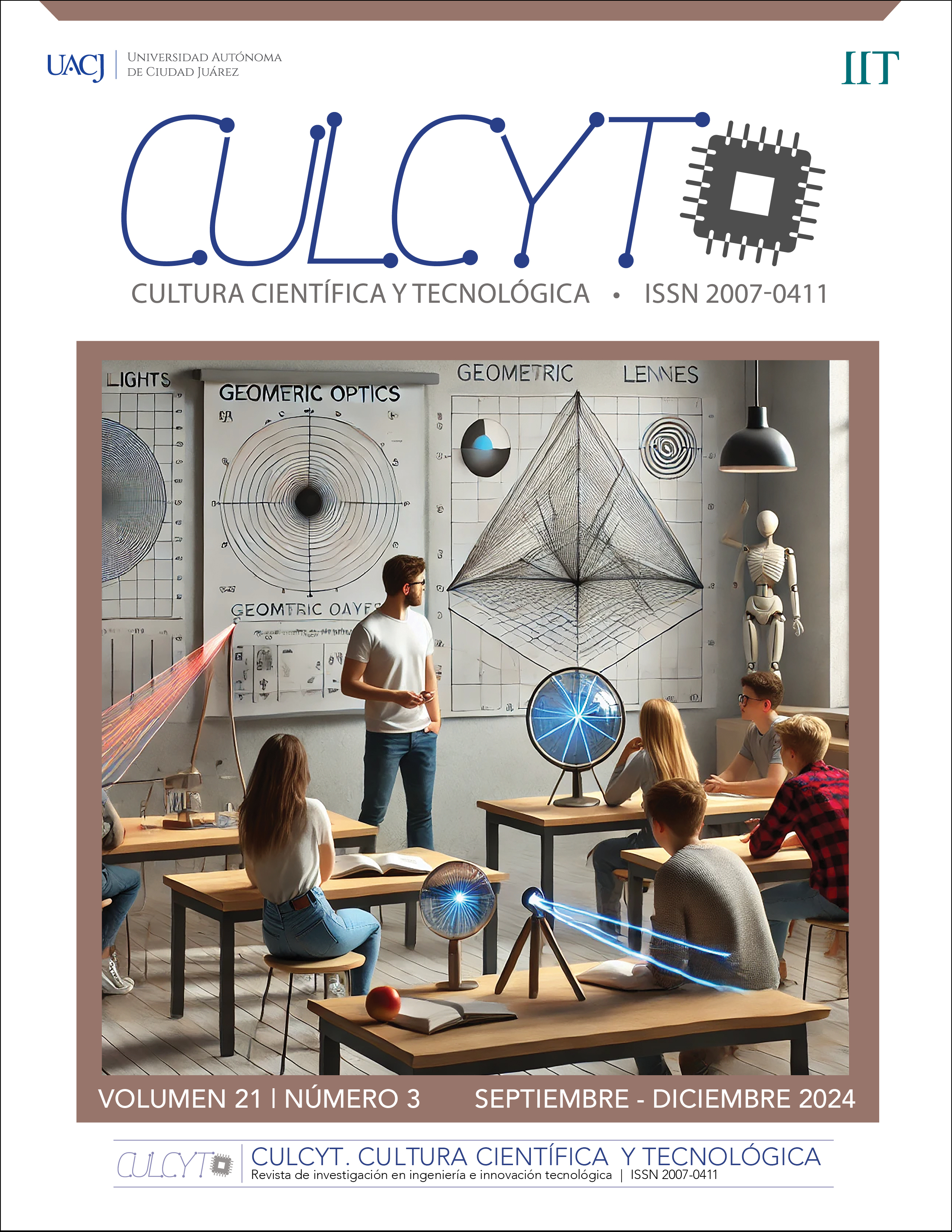Microcredencial para estudiantes de física
DOI:
https://doi.org/10.20983/culcyt.2024.3.2e.4Keywords:
microcertificación, plan de estudios de física, aprendizaje de máquina, inteligencia artificialAbstract
Este artículo describe los beneficios del uso de microcertificaciones para complementar los cursos de licenciatura en física. Se describe un programa de microcertificación desarrollado para el programa de licenciatura en física en la Universidad de Texas en El Paso, incluyendo módulos creados por el grupo Data Science Community of Practice (DSCOP), parte del grupo de Ciencia de Datos de la American Physical Society, sobre temas de ciencia de datos, aprendizaje de máquina e inteligencia artificial aplicados a temas de física.
Downloads
References
“Texas credentials for the future.” The University of Texas System. Accessed: Jul. 23, 2024 [Online]. Available: https://www.utsystem.edu/sites/texas-microcredentials
C. Sullivan. “Microcredentials Unleashed: Pioneering the Next Frontier.” The evolution. Accessed: Oct. 12, 2024. [Online]. Available: https://evolllution.com/microcredentials-unleashed-pioneering-the-next-frontier
V. Agarwal. “How Companies Like Meta, IBM, AWS & Netflix Are Using Microcredentials To Bridge Talent Gaps.” LinkedIn. Accessed: Oct. 12, 2024. [Online]. Available: https://www.linkedin.com/pulse/how-companies-like-meta-ibm-aws-netflix-using-bridge-talent-agarwal
“Data Science Community of Practice.” DSECOP.org. Accessed: Jul. 23, 2024. [Online]. Available: https://dsecop.org/
“GDS Education Community of Practice.” Github.com. Accessed: Jul. 23, 2024. [Online]. Available: https://github.com/GDS-Education-Community-of-Practice/DSECOP
“Exploratory Data Analysis.” Github.com. Accessed: Jul. 23, 2024. [Online]. Available: https://github.com/GDS-Education-Community-of-Practice/DSECOP/tree/main/Exploratory_Data_Analysis
“DSECOP Github: Parameter Estimation of RLC Circuit Model with Automatic Differentiation and Gradient Descent”. Github.com. Accessed: Jul. 23, 2024. [Online]. Available: https://github.com/GDS-Education-Community-of-Practice/DSECOP/tree/main/Automatic_Differentiation
“Introduction to Classification Algorithms”. Github.com. Accessed: Jul. 23, 2024. [Online]. Available: https://github.com/GDS-Education-Community-of-Practice/DSECOP/tree/main/Intro_to_Classification_Algorithms
“Connecting MonteCarlo to ModernAI.” Github.com. Accessed: Jul. 23, 2024. [Online]. Available: https://github.com/GDS-Education-Community-of-Practice/DSECOP/tree/main/Connecting_MonteCarlo_to_ModernAI
K. Shah. “Learning the Schrödinger Equation.” Github.com. Accessed: Jul. 23, 2024. [Online]. Available: https://github.com/GDS-Education-Community-of-Practice/DSECOP/tree/main/Learning_the_Schrodinger_Equation
“Deep Learning Applications in NMR Spectroscopy.” Github.com. Accessed: Jul. 23, 2024. [Online]. Available: https://github.com/GDS-Education-Community-of-Practice/DSECOP/tree/main/NMR_Deep_Learning
K. Shah. “Gaussian Processes and the Schrödinger Equation.” Github.com. Accessed: Jul. 23, 2024. [Online]. Available: https://github.com/GDS-Education-Community-of-Practice/DSECOP/tree/main/Gaussian_Processes_and_Schrodinger_Equation
J. A Muñoz et al. “Mechanics: projects and exercises in Python.” Github.com. Accessed: Jul. 23, 2024. [Online]. Available: https://github.com/jamunozlab/introductory_mechanics_spring_2023
“CLASS (Colorado Learning Attitudes about Science Survey).” Colorado.edu. Accessed: Oct. 12, 2024. [Online]. Available: https://www.colorado.edu/sei/class
Downloads
Published
How to Cite
Issue
Section
License
Copyright (c) 2024 Jorge A. López, Jorge A. Muñoz

This work is licensed under a Creative Commons Attribution-NonCommercial 4.0 International License.
Todos los contenidos de CULCYT se distribuyen bajo una licencia de uso y distribución “Creative Commons Reconocimiento-No Comercial 4.0 Internacional” (CC-BY-NC). Puede consultar desde aquí la versión informativa de la licencia.
Los autores/as que soliciten publicar en esta revista, aceptan los términos siguientes: a) los/las autores/as conservarán sus derechos de autor y garantizarán a la revista el derecho de primera publicación de su obra; y b) se permite y recomienda a los/las autores/as agregar enlaces de sus artículos en CULCYT en la página web de su institución o en la personal, debido a que ello puede generar intercambios interesantes y aumentar las citas de su obra publicada.



